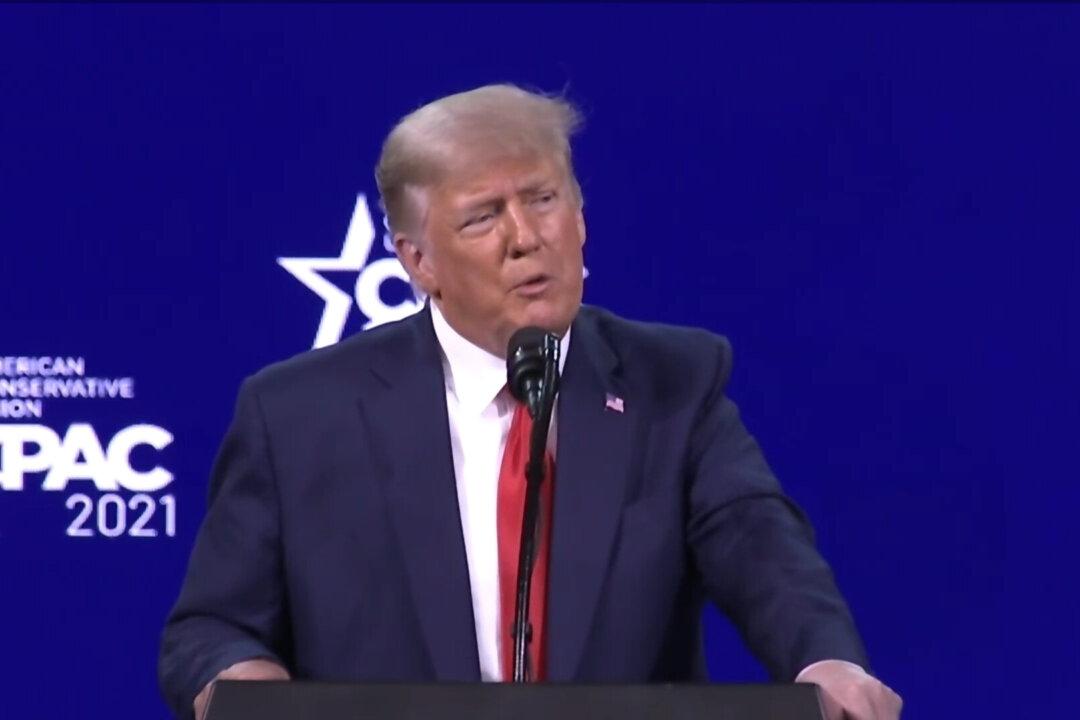Big tech companies such as Twitter, Google, and Facebook should face major penalties if they continue to engage in censorship of conservative voices, former President Donald Trump told an audience at the Conservative Political Action Conference (CPAC).
Trump, in his first major appearance since leaving office, took the opportunity to renew calls to sanction Silicon Valley companies that have engaged in what is perceived to be unbalanced moderation of user content that typically targets conservative voices and viewpoints.




